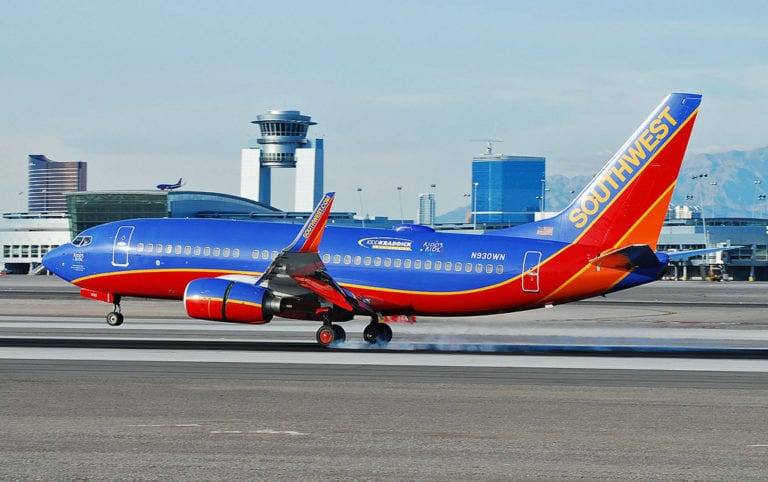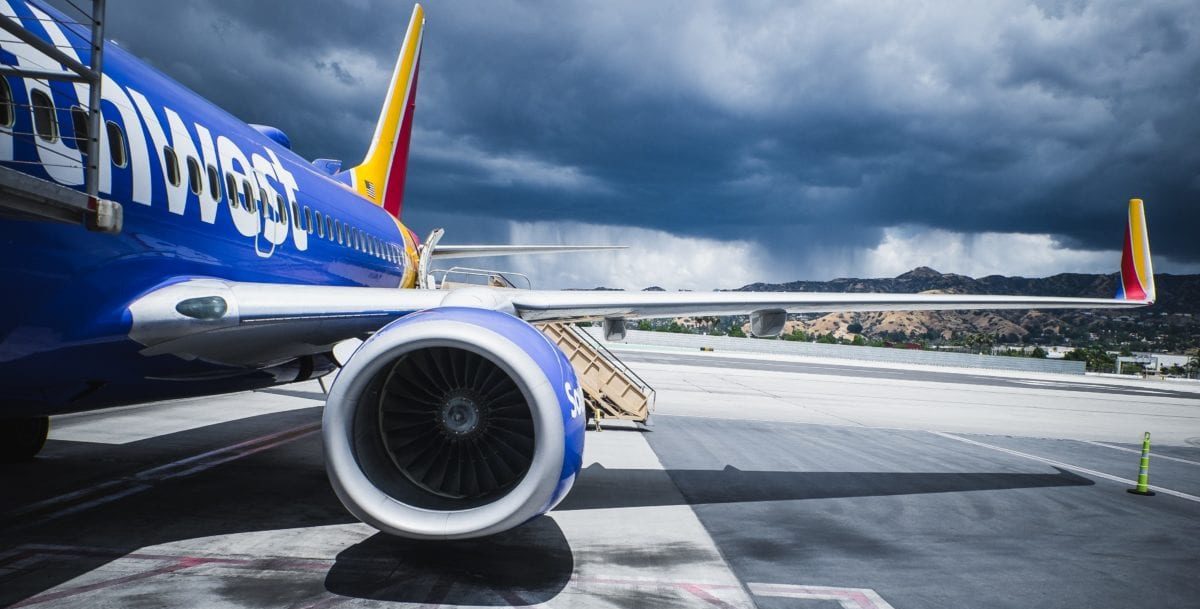The U.S. Department of Transportation has fined Southwest Airlines a record $140 million for its historic meltdown last winter that left more than 2 million passengers stranded over the holidays, the department announced Monday.
While the $140 million penalty is unprecedented, that's not what the Dallas-based airline is actually forking over to federal regulators. The $140 million sum counts $33 million for the 25,000 Rapid Rewards points Southwest doled out as an apology to affected travelers as well as $72 million set aside for a brand-new voucher system to compensate travelers who face extended delays in the future. Southwest will pay a $35 million penalty directly to the U.S. Treasury.
The fine against Southwest is 30 times larger than any previous civil penalty for consumer protections, the DOT said. America's top aviation regulator made clear that it's meant to ensure all the airlines take steps to prevent mass disruptions.
“Today’s action sets a new precedent and sends a clear message: if airlines fail their passengers, we will use the full extent of our authority to hold them accountable,” Transportation Secretary Pete Buttigieg said in a statement.
Southwest's Christmas meltdown began nearly a year ago, but it still looms large over the entire airline industry.
A major winter storm swept the country right before Christmas, forcing nearly every airline to cancel flights. But as other airlines recovered, Southwest was overwhelmed by the severe weather, staffing shortages, and an antiquated crew scheduling platform, spiraling into an unprecedented meltdown. The airline canceled 16,900 flights over an 11-day period, affecting more than 2 million passengers and ruining countless Americans' holiday travel plans.

The airline provided over $600 million in refunds and reimbursements to passengers in the wake of those disruptions. Southwest executives have vowed it'll never happen again, saying the airline has made operational improvements – from technology updates to additional de-icing resources – to avoid a repeat.
But the additional fine was no surprise to Southwest. The airline warned investors earlier this fall that a likely civil penalty was on the way after the Department of Transportation determined Southwest's response to the meltdown had failed consumers.
In a statement, Southwest said it was “grateful to have reached a consumer-friendly settlement that both credits past compensation that went above and beyond requirements for customers and incorporates a future commitment for Southwest customer care with a new industry-leading compensation policy.”
The DOT said Monday's announcement was the result of its “rigorous and comprehensive” investigation into Southwest's operations during the 2022 holiday season. Specifically, the transportation department found the airline violated consumer protection laws by failing to provide adequate customer service assistance, prompt flight status notifications, or issuing prompt and proper refunds.
Part of the settlement agreement includes something brand new for U.S. airlines: A $90 million fund to compensate future Southwest passengers impacted by controllable cancellations and significant delays. Southwest has agreed to provide at least a $75 airline voucher to any passenger who is delayed by three hour or more due to issues within Southwest's control.
After years of disruptions, President Joe Biden's administration began pushing earlier this year for mandatory compensation from all airlines when they delay or cancel flights, mimicking regulations in place in both Europe and Canada. But that kind of widespread federal rule faces uncertain odds with the U.S. House in Republican hands and the 2024 election around the corner.
Monday's settlement agreement puts some limited compensation requirements in play, but only for Southwest flyers.
In its statement, Southwest said passengers will be required to request “a voucher of $75 or greater” after an eligible delay – that compensation won't be proactively offered. The airline said it expects that new policy to be implemented by April 30, 2024.
